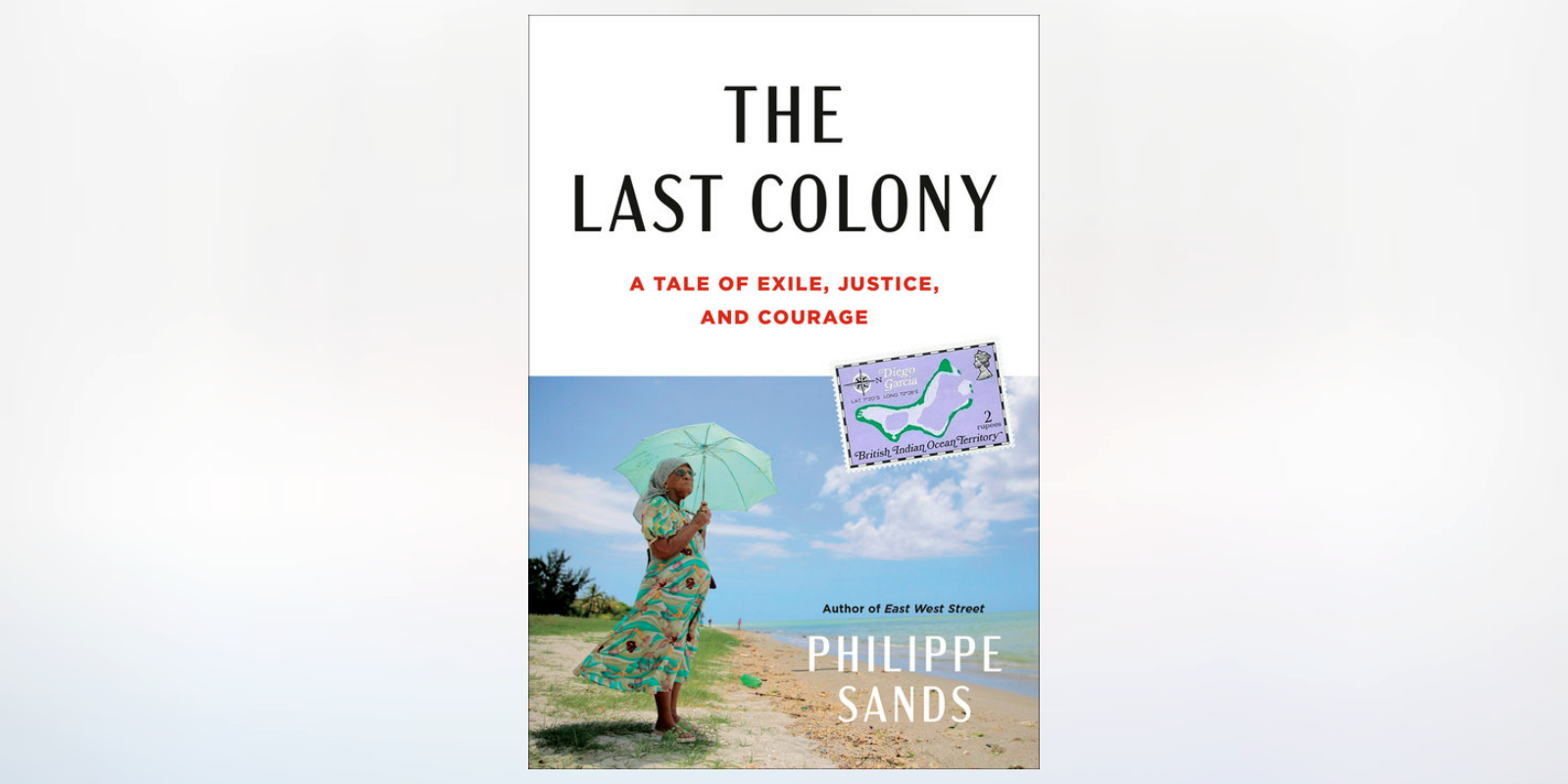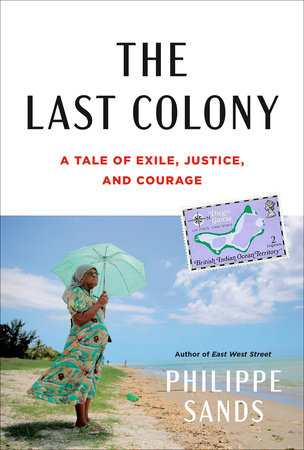The Last Colony is the moving, inspiring David-and-Goliath true story of freedom and justice involving one tiny nation in the Indian Ocean off the coast of Africa, and the extraordinary woman, a descendant of enslaved people, who dared to take on the Crown and the United Kingdom—and win a historic victory.
Part One
1945
“The individual human being . . . is the ultimate unit of all law.”
—Hersch Lauterpacht, 1943To answer the question posed by Madame Elysé it is necessary to go back to February 1945 and a winter’s day in Cleveland, Ohio. Standing at another podium, Ralph Bunche delivered a passionate lecture to the city’s Council on World Affairs, on colonialism and its future. Bunche, a US State Department official, was a Black American and a distinguished scholar of British and French administration in Africa. His lecture offered a robust response to an argument recently put to him by Arthur Creech Jones, the British Labour Party’s expert on colonialism. Given a choice between slow progress under British domination, or freedom under new international rules, Creech Jones explained, the colonized would opt for the former. And, he added, Bunche should apply his dangerous ideas on decolonization to himself and to the fifteen million Black people of the United States.
“The modern world has come to the realization that there is a great moral issue involved in the perpetuation of the colonial system,” Dr.Bunche declared in response. Is one people entitled to rule permanently over another? No. In the coming weeks he would have a chance to turn this idea into action, in negotiating a new international agreement, the Charter that would create the United Nations organization and begin the formal process of ending colonialism. Bunche spoke with authority, as the member of the US delegation negotiating the Charter, charged with reaching agreement on decolonization. A few weeks later, in April 1945, as work on the international agreement began in earnest at the San Francisco Opera House, he wrote to his wife. “I did feel a bit proud this afternoon, at being the only Negro who’s at on the first floor.”
The drafting process lasted eight weeks, the result reflected in Chapter XI of the UN Charter, a “Declaration Regarding Non-Self-Governing Territories.” Possibly the “most far-reaching declaration on colonial history ever written,” one delegate called it. Bunche recognized the limits of his efforts, expressing the hope that the new rules would be taken forward and implemented in good faith. He could not know that his work would unlock a door through which Madame Elysé would pass, many decades later, on a journey from Chagos to The Hague.
Newfoundland
The origins of Chapter XI of the UN Charter and its commitment to decolonization may be traced back to earlier revolutionary moments, in America and France and other places, to philosophical and political writings on the relationship between a person and the larger community of which they form a part. Such ideas prompted Vladimir Ilyich Lenin to publish three articles on “The Right of Nations to Self-Determination,” a call to end external domination. Four years later, American President Woodrow Wilson addressed the US Congress with similar ideas, touching on the interests of colonized populations. One of his Fourteen Points invoked the principle of “autonomous development” for different peoples of the Austro-Hungarian and Ottoman empires, the idea that each national group might have rights of its own. Such ideas influenced other thinkers, like W.E.B. Du Bois and Eliézer Cadet, and the Universal Negro Improvement Association founded by Marcus Garvey. In the post-war years, they pushed for the “right of self-determination” to be “applied to Africans and to every European colony where the African race predominates,” and for Germany’s African colonies to be returned to “the natives.”
Two decades later, in 1941, as war raged once more, German forces headed into Soviet territory and the lands of north Africa. They threatened British control of Egypt and the Suez Canal, the route to Mauritius, India and other colonial domains. In the east, Japan posed its own threat to British, Dutch and French colonies. Not yet engaged in the war, President Franklin Delano Roosevelt used this moment to propose a meeting with British Prime Minister Winston Churchill. “Somewhere in the Atlantic,” Churchill whispered, a secret location.
The two met on Saturday, 9 August 1941, on board the USS Augusta, moored in Little Placentia Sound, off the coast of Newfoundland, a British colony. The following day, they discussed the draft of a joint statement they might issue. Over dinner, Roosevelt’s son, Captain Elliot Roosevelt of the US Army Air Force, observed a “highly charged” quarrel between FDR and Churchill, on colonialism and the British Empire. Roosevelt provoked Churchill, telling him he wanted to end preferential trade and other economic arrangements for Britain’s colonies.
“England does not propose for a moment to lose its favored position among the British Dominions,” Churchill responded, irritated. Roosevelt countered: real peace required the “development of backward countries,” and, to confront fascism, the two countries must work together to free people from “a backward colonial policy.”
Churchill’s effort to change the subject was unsuccessful. The United States would not underwrite colonialism, Roosevelt continued, and would support “popular movements” for independence and self-government. Looking back, to the Cold War years that followed, to developments in Chile, Nicaragua, Iraq and Afghanistan, among others, the charge of hypocrisy can easily be levelled against the US. Nevertheless, Roosevelt hoped to replace British colonialism with a New American Century, and one of his ideas would be taken forward as the “principle of self-determination.”
Robust views were exchanged over several days. The Americans arrived with a draft text, but Roosevelt did not share it with Churchill, fearing it would be rejected outright. Better to allow the British to prepare a draft of their own, to which the Americans could respond. The ploy worked. The first draft of the “Atlantic Charter,” Churchill would say, was “a British production cast in my own words.”
He walked straight into the trap laid by Roosevelt.
The draft was reworked, words added or changed, or removed. Sentences were inserted, new points raised. After three days, the two agreed on a short text that set out their hopes for a “better future for the world.” The ideas included respect for territory; more economic cooperation; an end to trade preferences for the colonies; individual freedoms; and limits on the use of military force.
The Atlantic Charter was a single, typewritten page consisting of eight brief paragraphs. In due course, paragraph three would become crucial for Mauritius and Madame Elysé, the words that committed Britain and America to “respect the right of all peoples to choose the form of government under which they will live.” The idea was revolutionary, invoking the notion that sovereign rights and self-government would be “restored to those who have been forcibly deprived of them.” Churchill wrote the words without thinking through how they might be interpreted and applied.
The Atlantic Charter was widely reported in the press. A statement of intentions, The New Yorker magazine noted, and a pretty good one, even if open to interpretation. Roosevelt saw the Charter as announcing an end to empire, taking forward Wilson’s Fourteen Points, a tool that promised people in the east of Europe “their own nation-state.”
Churchill read the text differently. No, he assured the House of Commons, the Atlantic Charter did not imply an end to Britain’s colonies—its vital third paragraph was only for those who lived “under the Nazi yoke.” Those who owed allegiance to the Crown, in India, Burma, Mauritius and other parts of the British Empire, would not be subject to the commitment expressed in the third paragraph.
Churchill’s reading was not so widely shared. Across Africa, many read the words of the third paragraph as applying to them and the colonies of their continent, a commitment for the “Africanization” of governments. In South Africa, a young Nelson Mandela saw the words of the Atlantic Charter not as empty promises, but as offering “full citizenship,” the right to land and an end to “all discriminating legislation.”
The world of international law was—and still is—conservative and cautious, but once words are agreed they often take on a life of their own. A few months after the Atlantic Charter was adopted, the third paragraph was picked up and its sentiment inserted into the “Declaration by the United Nations,” adopted in Washington DC in January 1942. Twenty-six countries agreed to join forces against Germany and Japan, whose attack on Pearl Harbor, a month earlier, had prompted the Americans to enter the war. The Soviet Union and China were among the countries that embraced the Atlantic Charter’s commitment to self-government, and called for the preservation of “human rights and justice in their own lands as well as in other lands.”
Within a few years, some fifty countries were supporting the1942 Declaration, with four from Africa: Egypt, Ethiopia, Liberia and South Africa. The commitment to decolonization had taken off, even if the modalities were uncertain.
Copyright © 2023 by Philippe Sands. All rights reserved. No part of this excerpt may be reproduced or reprinted without permission in writing from the publisher.

© Christian André Strand
PHILIPPE SANDS is professor of law at the University of London, the Samuel Pisar Visiting professor at Harvard Law School, and the author of East West Street. He is a frequent commentator on CNN and the BBC World Service, and a litigator before international courts. He is the former president of English PEN. In 2003 Sands was appointed a Queen’s Counsel. He lives in London, England.






